AIDA64 CPU Benchmarks
Now we will look at some specific AIDA64 CPU Benchmarks which test specific parts of the CPUs. The AIDA64 PhotoWorxx benchmark stresses integer arithmetic and multiplication execution units of the CPU and also the memory subsystem. The AIDA64 AES benchmark performance using AES data encryption. The SHA3 benchmark tests CPU performance using the SHA3 hashing algorithm and is AVX-512 aware. The FPU Julia benchmarks measure the single-precision floating-point performance of the CPU. The FPU Mandel CPU test tests the double-precision floating-point performance of the CPU.
CPU PhotoWorxx
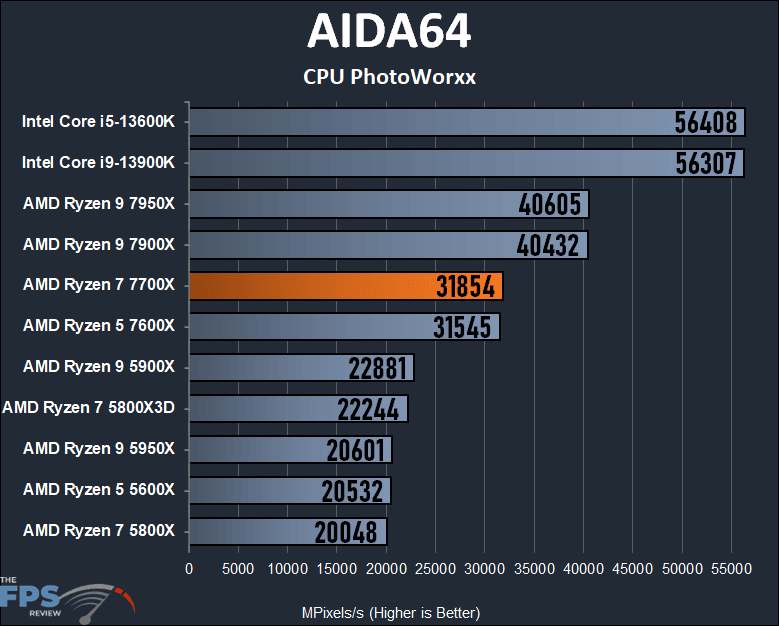
Right off the bat, the obvious elephant in the room is how much better Intel CPUs run this benchmark, and we’ve seen this trend in all of our tests on AMD and Intel CPUs. This benchmark seems to be very frequency biased, instead of core/thread biased. In this case, the Intel Core i5-13600K is 77% faster than the 13600K. However, if we look at the uplift the new 7700X has over the previous generation, we do find significant gains. The Ryzen 7 7700X is 59% faster than the Ryzen 7 5800X, a big improvement considering both CPUs have the same core/thread count. The 7700X offers about a 1% improvement over the 7600X in this benchmark.
CPU AES
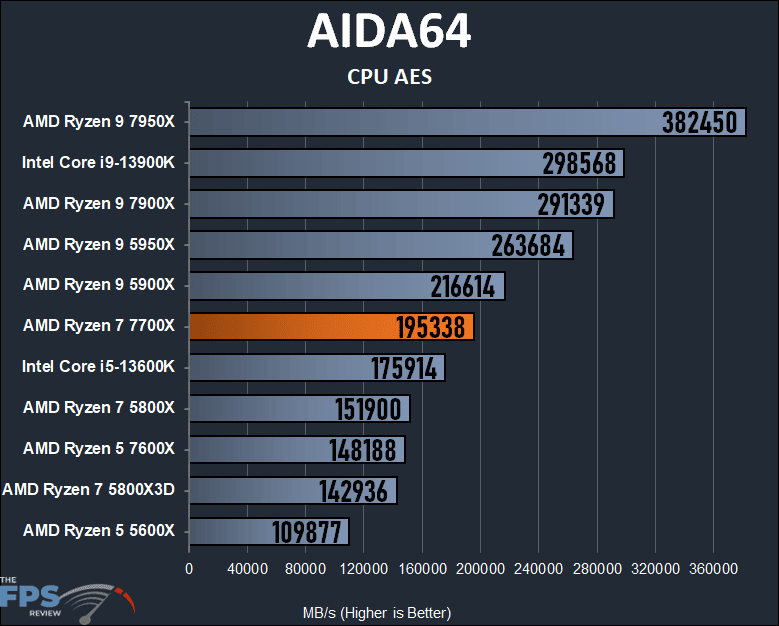
Encryption is where the Ryzen 7000 series really gets to stretch its legs compared to the Intel CPUs. The Ryzen 7 7700X is 29% faster than the Ryzen 7 5800X in CPU AES. It also offers more performance over the 7600X, by 32%. This shows that this benchmark is more heavy on core/thread count and the 7700X with more cores has a bigger uplift from the 7600X. The Ryzen 7 7700X is also 11% faster than the Intel Core i5-13600K.
CPU SHA3
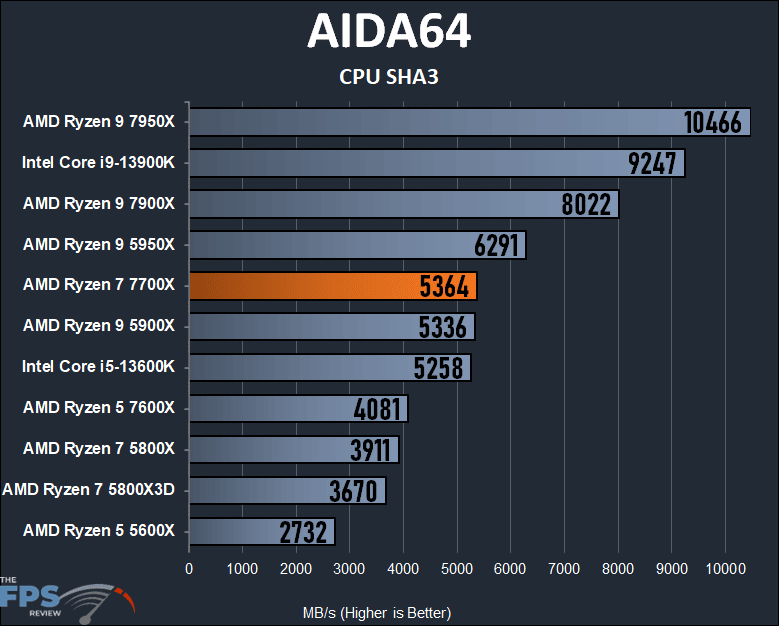
In CPU SHA3 the Ryzen 7 7700X is 37% faster than the Ryzen 7 5800X and even faster than the Ryzen 9 5900X. The 7700X also offers 31% more performance over the 7600X. The Ryzen 7 7700X is 2% faster than the Intel Core i5-13600K.
FPU Julia
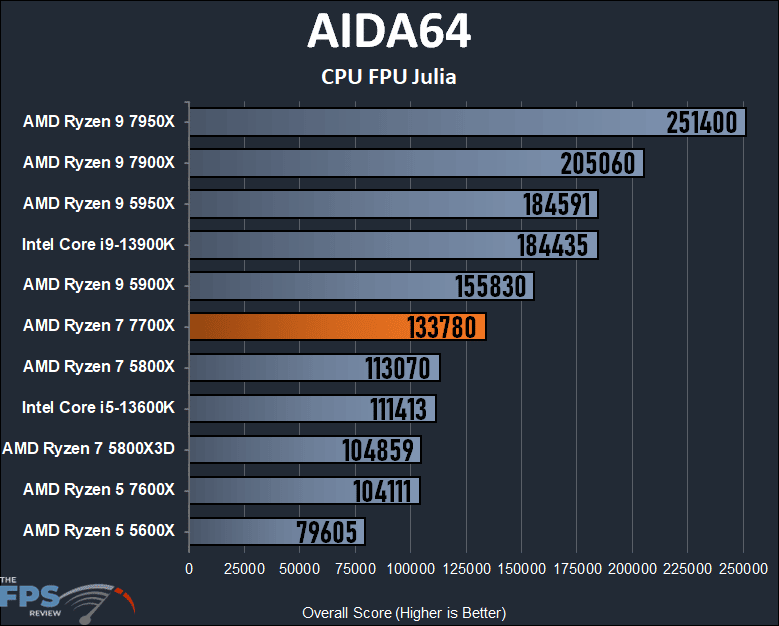
We know encryption performance is good, so how about FPU performance? Well, that is good as well. The Ryzen 7 7700X is 18% faster than the Ryzen 7 5800X and 20% faster than the Intel Core i5-13600K. It also offers an uplift of 28% over the 7600X.
FPU Mandel
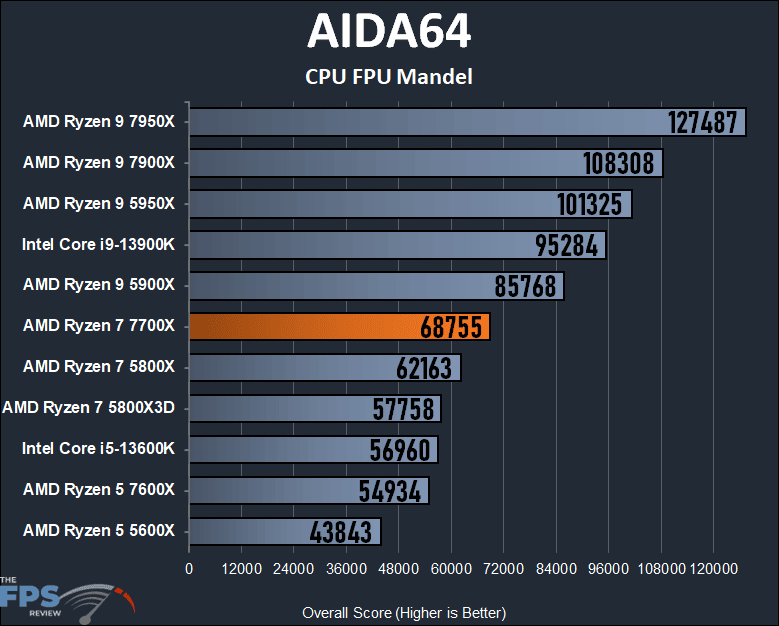
In CPU FPU Mandel the Ryzen 7 7700X is 11% faster than the Ryzen 7 5800X and 21% faster than the Intel Core i5-13600K. It offers an uplift of 25% over the 7600X.
Memory Read
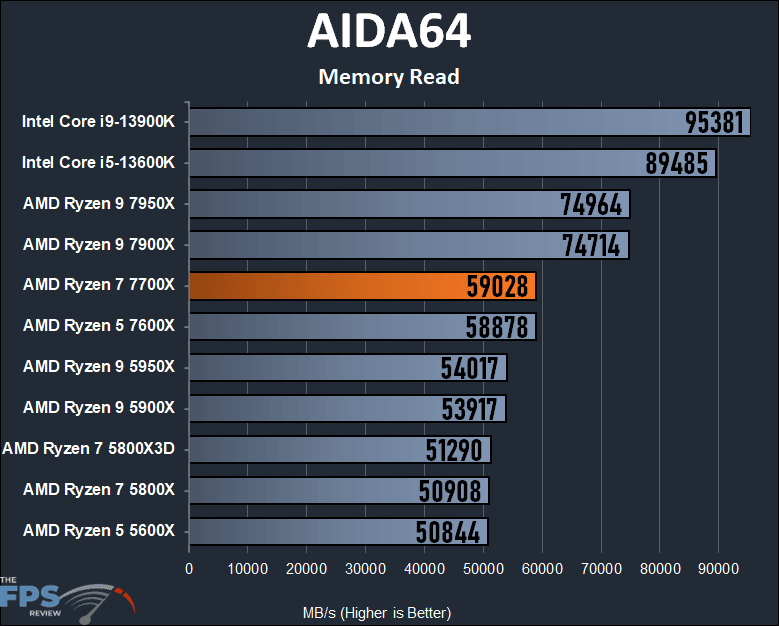
The AMD Ryzen 7 7700X is on par with the Ryzen 5 7600X, due to its CCD configuration, this is a bit slower in raw bandwidth compared to the 7900X and 7950X. At 59GB/s memory read it is just about 16% more bandwidth than the Ryzen 7 5800X. Even though this is DDR5, it’s not that large of a gain over fast DDR4 with this particular chip configuration, on memory bandwidth.
Memory Write
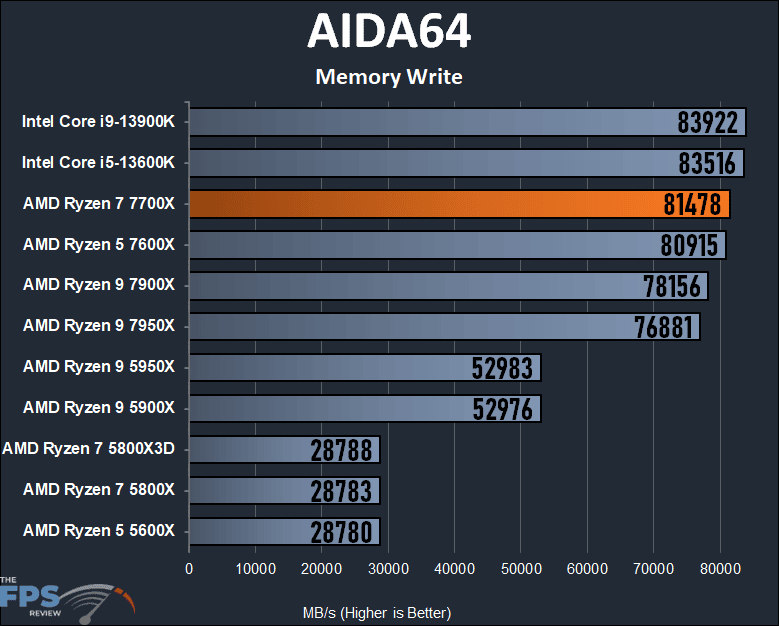
Memory write performance, however, is another story, the Ryzen 7 7700X is actually on top in terms of Zen 4 memory write bandwidth at 81GB/s. This rivals the Intel CPUs, coming very close to what they offer on memory write performance. Compared to the Ryzen 7 5800X the 7700X has a whopping 183% more memory write bandwidth!
Memory Latency
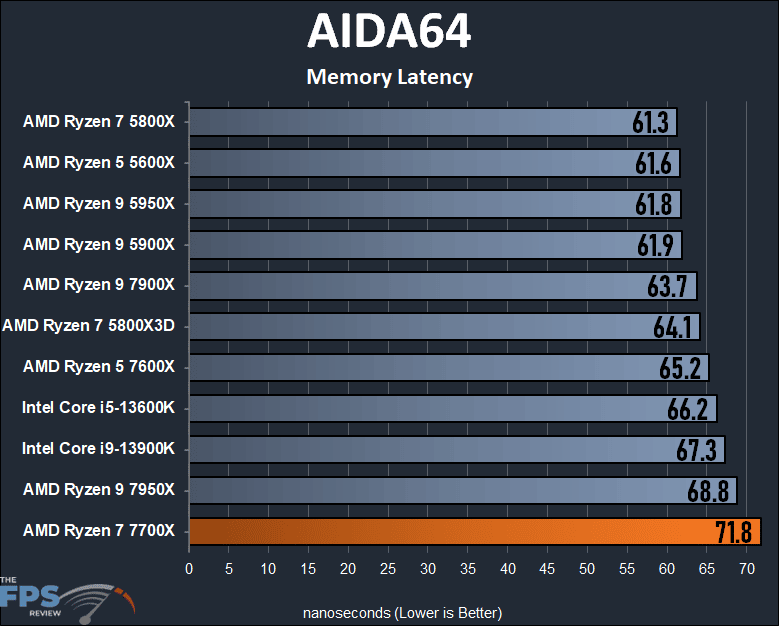
Memory latency is a sticking point on the Ryzen 7 7700X, with the highest latency on this graph, above 70ns. DDR4 is still king on latency, but newer DDR5 modules that mature over time should improve this.